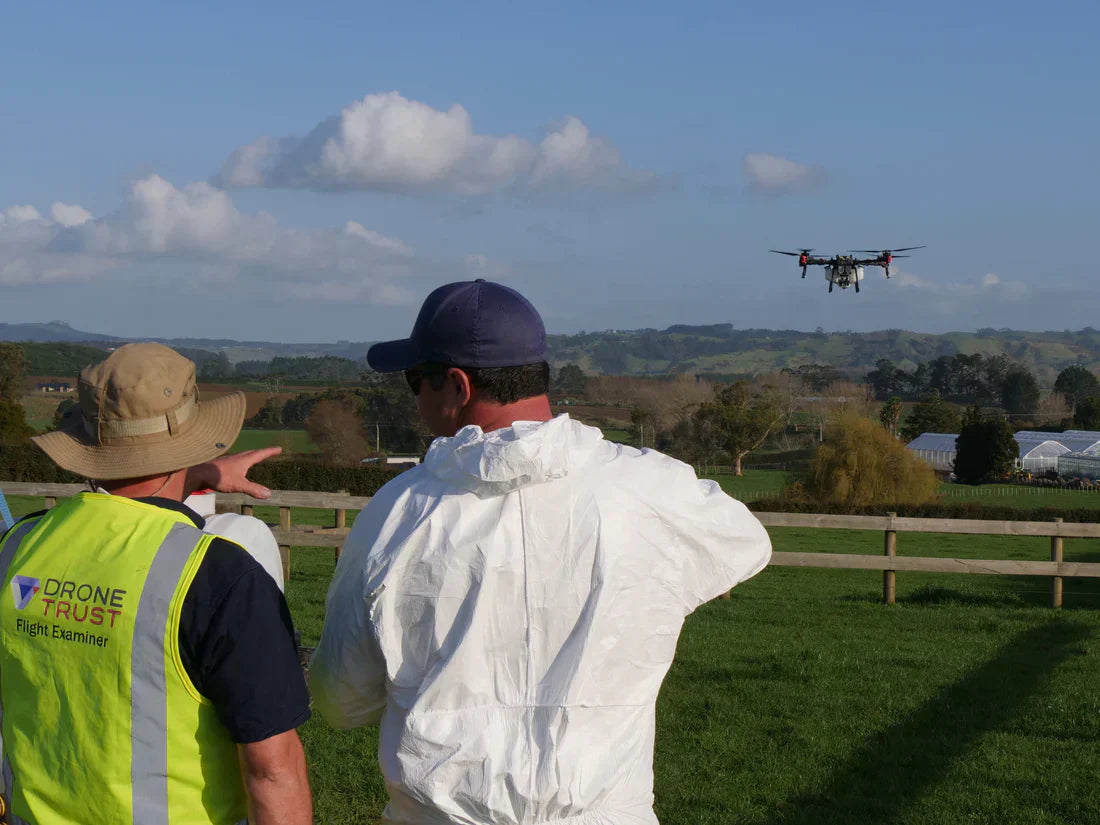
Eco-Friendly Farming from the Air: Drones Help New Zealand Go Greener
Share
New Zealand's agricultural sector is soaring to new heights with the revolutionary adoption of drone technology, transforming traditional farming practices into sophisticated, environmentally conscious operations. As the country continues to lead global sustainability efforts, eco-friendly farming has found its perfect aerial companion in unmanned aircraft systems that are reshaping how Kiwi farmers manage their land.
The integration of drones that New Zealand farmers are embracing represents a significant shift towards precision agriculture, where every hectare is monitored with unprecedented accuracy. These sophisticated flying machines equipped with advanced sensors and cameras are enabling farmers to optimise their operations whilst dramatically reducing their environmental footprint. From Canterbury's expansive wheat fields to Waikato's lush dairy pastures, drones are providing real-time insights that were previously impossible to obtain.
Traditional vs. Eco-Friendly Farming Practices
Traditional farming methods often relied on blanket applications of fertilisers and pesticides across entire fields, regardless of specific needs in different areas. This approach not only wasted valuable resources but also contributed to environmental degradation through chemical runoff and soil contamination. Eco-friendly farming practices facilitated by drone technology have revolutionised this outdated system, allowing farmers to identify precisely where interventions are needed and apply treatments with surgical precision.
The environmental benefits of agricultural drone spraying vs. traditional crop spraying methods are substantial. By using multispectral imaging and thermal sensors, these aerial platforms can detect plant stress, disease outbreaks, and nutrient deficiencies before they become visible to the naked eye. This early detection capability means farmers can address problems with targeted solutions rather than widespread chemical applications, reducing the overall use of pesticides and fertilisers by up to 40 percent in many cases.
Water management, particularly crucial in New Zealand's varied climate conditions, has been transformed through drone surveillance. These unmanned systems can identify irrigation inefficiencies, detect water stress in crops, and monitor soil moisture levels across vast areas. This precision approach to water management not only conserves this precious resource but also prevents waterlogging and reduces nutrient leaching into waterways, protecting New Zealand's pristine rivers and lakes.
The economic advantages of drones in New Zealand’s agricultural sector complements their environmental benefits perfectly. Farmers report significant cost savings through reduced chemical inputs, improved crop yields, and more efficient labour utilisation. A single drone can survey hundreds of hectares in a matter of hours, a task that would previously require days of manual inspection or expensive helicopter surveys.
Agricultural Drone Technology in New Zealand
Technology companies across New Zealand are developing specialised agricultural drones tailored to local farming conditions. These innovations include swarm technology for large-scale operations, AI-powered analysis systems that can predict crop diseases, and hybrid drones capable of both monitoring and targeted treatment applications. The country's tech sector is positioning itself as a global leader in agricultural drone innovation.
Regulatory frameworks supporting drone adoption in agriculture have been progressively refined, with Civil Aviation Authority guidelines enabling farmers to operate these systems safely and effectively. Training programmes and certification schemes ensure operators understand both the technological capabilities and environmental responsibilities that come with this powerful technology.
Drones: Cornerstones to Productive Farming and Conservation
The future of eco-friendly farming in New Zealand looks increasingly airborne. As drone technology continues to evolve, incorporating artificial intelligence, machine learning, and improved sensor capabilities, farmers will gain even greater insights into their operations. This technological evolution promises to further reduce environmental impacts whilst maintaining the productivity that makes New Zealand agriculture globally competitive.
Drones represent a practical, economically viable solution that allows farmers to meet these challenges whilst maintaining profitability. Learn more about online training courses to help you get started with agricultural drones.



